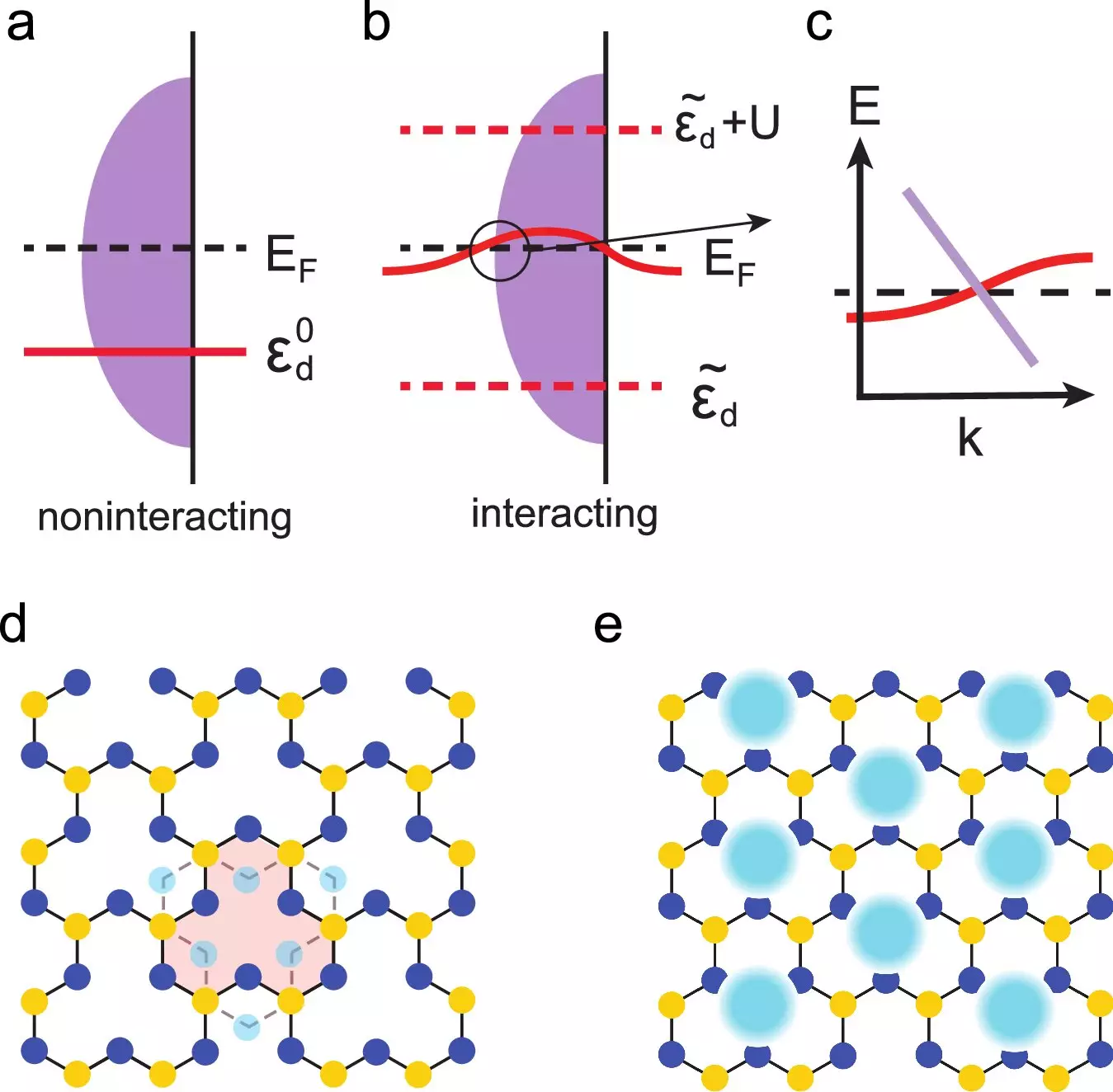In a groundbreaking study recently published in Nature Communications, researchers from Rice University have made a significant discovery regarding flat electronic bands at the Fermi level in quantum materials. Led by Qimiao Si, the team’s findings have the potential to revolutionize the field of quantum computing and electronic devices.
Quantum materials operate under the principles of quantum mechanics, where electrons occupy distinct energy states. These states form a ladder structure, with the highest level known as the Fermi energy. When electron interactions generate new flat bands at the Fermi level, it can have a profound impact on the material’s properties. Flat bands are unique in that they exhibit quantum interference, keeping their energy constant even as their momentum changes. This characteristic makes flat bands highly sought after in transition metal ions with specific crystal structures, as they can lead to the creation of new quantum phases and unconventional low-energy behaviors.
Exploring New Possibilities
The team’s research suggests that electron interactions can establish connections between immobile and mobile electron states, leading to the emergence of a new type of Kondo effect. This effect, which describes the scattering of conduction electrons in a metal due to magnetic impurities, can be enabled by quantum interference. Furthermore, the topology of flat bands pinned to the Fermi energy provides a pathway to realizing new quantum states of matter, including anyons and Weyl fermions. These unique particles have the potential to serve as qubits and find applications in spin-based electronics, respectively.
The discovery of flat bands opens up new possibilities for designing and controlling novel quantum materials that can operate at higher temperatures, potentially even at room temperature. These materials are expected to exhibit strong correlations and topological properties, making them highly responsive to external signals and suitable for advanced quantum control. By leveraging flat bands in strongly interacting settings, researchers can push the boundaries of quantum technology and pave the way for the development of next-generation electronic devices.
The research conducted by the team at Rice University sheds light on the immense potential of flat electronic bands in quantum materials. By harnessing the unique properties of flat bands, scientists can explore new frontiers in quantum computing, quantum bits, qubits, and spintronics. The implications of this study extend beyond the realm of low temperatures, offering a glimpse into a future where quantum materials operate at higher temperatures with unprecedented levels of control and functionality.


Leave a Reply